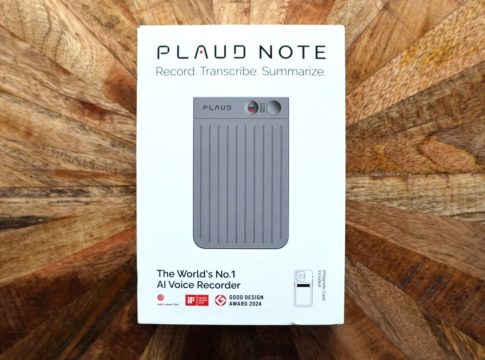Meet Plaud AI: The Future of Conversational Notetaking
Imagine you’re in a meeting, and instead of scrawling notes furiously, a small device is quietly capturing every word—ready to deliver a neatly organized transcript at your convenience. Enter Plaud AI, a company that is redefining how we take notes in both casual chats and professional settings.
Game-Changing Hardware
Plaud offers two intriguing products: the Plaud Note and the Note Pin, each priced at $159. The Plaud Note resembles a slim, portable rectangle that can easily slide into a smartphone pocket or fit neatly onto a button-down shirt. Its smaller counterpart, the Note Pin, can be worn as a pendant or on a wristband, making it a versatile tool for business executives and professionals alike.
How It Works
The technology behind these devices is impressive. With a simple switch, users activate a network of tiny microphones that record conversations for up to 30 hours on the Plaud Note and 20 hours on the Note Pin. The audio recordings are sent to the cloud, where advanced AI models—from Google’s Gemini to OpenAI’s GPT—transcribe and summarize the discussions.
Through a companion mobile app, users can access not just the original transcripts but also summaries of meetings. This isn’t just a glorified voicemail; the AI can even suggest next steps based on the conversation, enhancing productivity in environments where clarity is often overshadowed by chaos.
Privacy Concerns and Social Norms
However, while the technology is compelling, it raises important questions about privacy and social etiquette. There’s a fine line between capturing essential information and infringing on personal boundaries. As Plaud’s brand head, Elina Tsao, highlights, such recording devices might lead to new reporting practices at workplaces, including potential HR investigations stemming from recorded conversations.
Plaud claims to prioritize user privacy, encrypting recordings before sending them to the cloud. Still, the ethics surrounding consent become murky, especially as more people begin to assume they are being recorded.
Target Users and Applications
Currently, Plaud boasts around one million users, primarily in the U.S., followed by Japan and France. Notably, about 20% of these users are healthcare professionals looking to streamline their documentation processes. This group benefits from Plaud’s commitment to HIPAA compliance, ensuring that sensitive medical information stays protected.
The device is adaptable as well. Users can select from 30 job templates, including lawyer and therapist, allowing the AI to personalize its functionality based on each profession.
Standout Features and Limitations
Key Features:
- Dual Devices: Plaud Note and Note Pin, both compact and stylish.
- Long Recording Time: Up to 30 hours of battery life.
- AI-Driven Summaries: Get concise meeting summaries and actionable next steps.
Pros:
- Innovative Approach: A physical device for professional recording fosters transparency about recordings.
- User-Friendly: Easy to access and navigate through the app.
Cons:
- Privacy Doubts: Concerns about consent and workplace culture.
- Accuracy Issues: AI hallucinations and biases may lead to inaccurate summaries, particularly with non-English conversations or unique terminology.
Final Thoughts
Plaud AI is pioneering a niche in the burgeoning field of AI-assisted technology, making notetaking a breeze while bringing forth a dialogue about ethics in workplace recording. As discussions about workplace productivity persist, Plaud may just be the tool that shifts how we communicate and document ceaseless conversations. Keep an eye out for these devices hitting major retailers like Best Buy this coming August!

Writes about personal finance, side hustles, gadgets, and tech innovation.
Bio: Priya specializes in making complex financial and tech topics easy to digest, with experience in fintech and consumer reviews.

